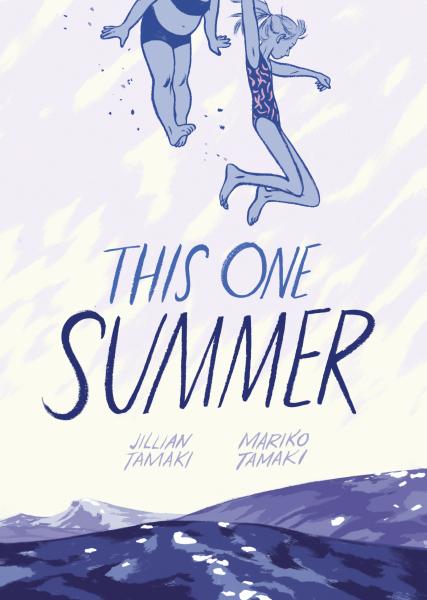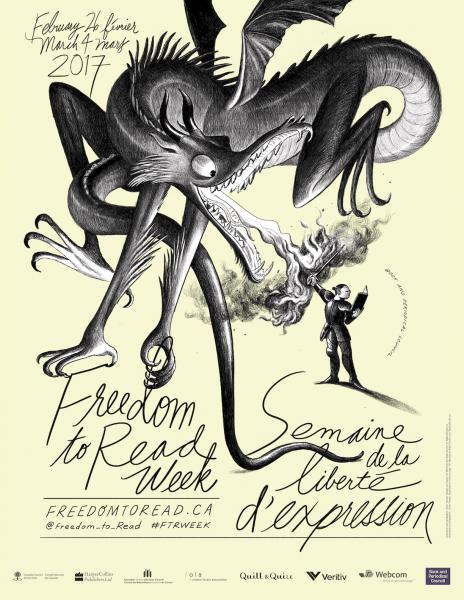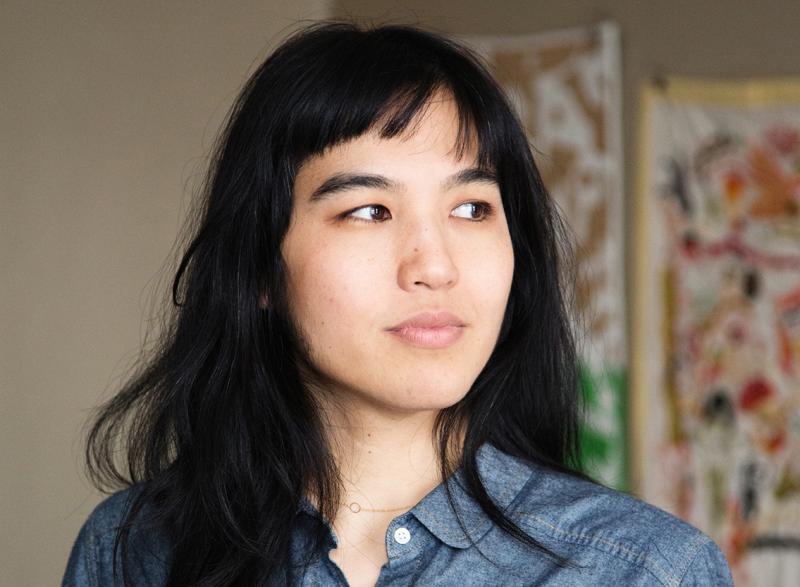Jillian Tamaki, who will judge our 2016 Cover Art Contest with Hangama Amiri, is a professional illustrator who has contributed artwork to The Walrus, The New Yorker, The New York Times, National Geographic, Drawn & Quarterly, and other publications. She is the co-creator of two award-winning and critically acclaimed graphic novels with her cousin, Mariko Tamaki, SKIM and This One Summer, and the author of SuperMutant Magic Academy. Jillian was kind enough to answer questions about her work in the following interview.
Jillian Tamaki, who will judge our 2016 Cover Art Contest with Hangama Amiri, is a professional illustrator who has contributed artwork to The Walrus, The New Yorker, The New York Times, National Geographic, Drawn & Quarterly, and other publications. She is the co-creator of two award-winning and critically acclaimed graphic novels with her cousin, Mariko Tamaki, SKIM and This One Summer, and the author of SuperMutant Magic Academy. She has won multiple awards, including a Governor General’s Award, a Caldecott Honour, and a Printz Award for This One Summer. Visit her website at jilliantamaki.com.
Jillian was kind enough to answer a handful of questions about her work via email (in particular, I think her answer to my incredibly boring first question is important—it felt like a default to me, but it’s a little sexist in itself to keep asking it, isn’t it?)
ROOM: The comics / graphic novel publishing world has historically been dominated by (white) men. In what ways has the industry changed (or failed to change) to open doors for female creators?
JT: It’s a perennial question that . . . I’m really tired of answering. I guess it’s like any industry: vulnerable to the systemic, institutional problems of Patriarchy. But from my perspective, women have been active and, frankly, dominating my little corners of the scene (indie, online, YA comics) for years. I can’t speak about mainstream comics because I’m not involved in them, but my cousin Mariko is working on, like, 10,000 titles right now. So maybe that also says something. I dunno. Sometimes I wish we could stop “starting” the conversation about women’s achievements with blanket statements that, frankly, seem a little dated.
 ROOM: In a previous interview with Room, you said about your collaborations with Mariko Tamaki:
ROOM: In a previous interview with Room, you said about your collaborations with Mariko Tamaki:
“Emotional resonance ultimately has more power than art style or cool factor. Part of what is great about working with Mariko is that so much of what she writes is unsaid. A lot of her work is about non-communication, and blockages between people. It’s not in the words, it’s what you’re not saying. And so what I get to do is communicate that through body language, and the unspoken things are where I get to play. I love filling in the gaps a little bit in sort of an enigmatic way.”
And in an interview about SuperMutant Magic Academy, you told the Guardian that you were “fascinated by the interior versus the exterior.” Can you elaborate a little on this idea? How does it inform artistic decisions?
JT: I am a terrible emo narcissist that is fascinated by my own feelings. But not such a narcissist, I guess, to assume that I’m alone in experience this insane spectrum of emotions all the time . . . yet so rarely are they on display. Maybe it’s the Canadian thing, but everything is so under control and ordered and buttoned up. But they’re there. It’s magnificent when that wall is, once in a while, broken. When you realize that boring old life can sort of be like fiction sometimes, with love and turmoil and lies and deceit. Haha.
 ROOM: Speaking of SuperMutant … I absolutely loved this book. It’s so absurd at times, but in a way that always feels honest and relatable. You’ve joked in multiple interviews that it was an “intentionally stupid concept“—but clearly the result is anything but. Still, I was thinking about this, and realized there’s a lot of freedom in working with a concept you don’t necessarily take seriously, that can open you up to experimenting, or surprising emotional truths? What was it like working on these strips? Why do you think readers find it so easy to connect to these characters?
ROOM: Speaking of SuperMutant … I absolutely loved this book. It’s so absurd at times, but in a way that always feels honest and relatable. You’ve joked in multiple interviews that it was an “intentionally stupid concept“—but clearly the result is anything but. Still, I was thinking about this, and realized there’s a lot of freedom in working with a concept you don’t necessarily take seriously, that can open you up to experimenting, or surprising emotional truths? What was it like working on these strips? Why do you think readers find it so easy to connect to these characters?
JT: The conceit was just a wire hanger. There was a lot of freedom taking all the cleverness out of the idea. It proved, to me, at least, that a lot of ideas are actually ‘value-neutral’. It’s in the execution.
The strips kind of served as my diary for several years, so it’s very gratifying that a lot of people connected to them. I like that honest-to-god teens like that book. That’s a very discerning audience.

ROOM: Is the artistic process different for your solo comics, versus the graphic novels you’ve created with Mariko?
JT: It varies but I typically write them out in google docs first, all text. Then thumbnail on paper then sketch on the computer. Editing on the way.
ROOM: One of the things I’ve always admired about your work is the versatility—what are some of the considerations when deciding on a drawing style for an illustration, or for a comic?
JT: Not a lot of consideration beyond what I think is appropriate for the tone of the job and what I’m interested in that particular day/month/year.
ROOM: You mentioned that you’ve been making quilts since you were a teenager. I loved the embroidery and textiles I saw on your website—can you tell us a little more about this part of your artistic life?
JT: I like collaging and quilts are a more useful version of that. I’m showing some quilts in Toronto in early 2017.
ROOM: What advice do you have for emerging artists who are interested in pursuing a career in illustration?
JT: Get instagram, or don’t.
Photo credits: Jillian Tamaki, photo by Reynard Li (top), This One Summer by Jillian Tamaki and Mariko Tamaki (middle left), SuperMutant Magic Academy by Jillian Tamaki (middle right), Freedom To Read poster by Jillian Tamaki (bottom left).














